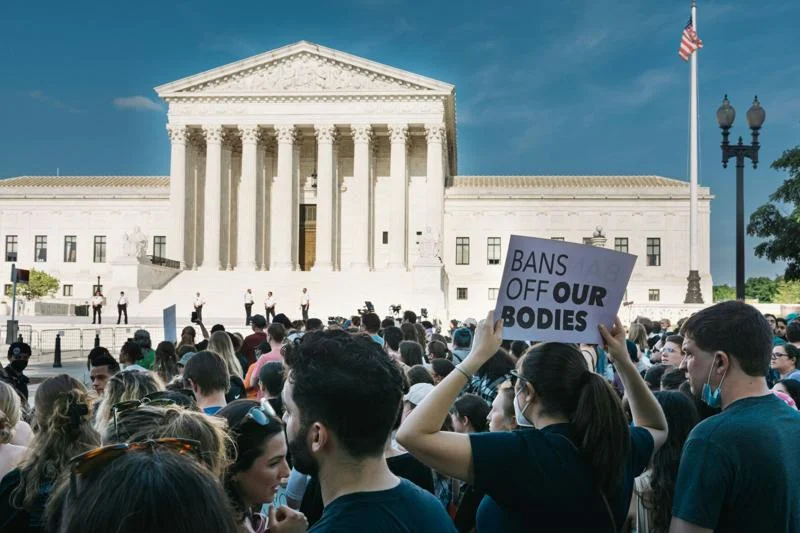The U.S. Supreme Court handed down rulings on five cases Wednesday, most notably backing a Tennessee law that bans health care providers from offering transgender care to minors.
The court also ruled on nuclear waste storage licensing, prison grievance procedures and two Environmental Protection Agency cases.
Youth transgender medical care
6-3 ruling
The justices upheld a Tennessee law blocking medical care for transgender youth, with all three members of the liberal bloc voting in dissent. The 2023 bill bars health care providers from prescribing hormone blockers to patients who are minors.
“This case carries with it the weight of fierce scientific and policy debates about the safety, efficacy and propriety of medical treatments in an evolving field,” Chief Justice John Roberts wrote for the majority. “The voices in these debates raise sincere concerns; the implications for all are profound.”
This decision by the nation’s chief court was one of the most-watched rulings of the current term. Transgender policy has been especially topical in recent months after President Donald Trump wrote in a day-one executive order that “sexes are not changeable and are grounded in fundamental and incontrovertible reality.”
Dissenting Justice Sonia Sotomayor wrote that the majority decision “abandons transgender children and their families.”
Nuclear waste storage in Texas
Nuclear Regulatory Commission v. Texas
6-3 ruling
The Supreme Court reversed a lower court’s decision that a private company could not store nuclear waste at a facility in West Texas. The lawsuit, brought forth by the state of Texas and a group of landowners, challenged the Nuclear Regulatory Commission’s authority to license the land.
Justice Brett Kavanaugh said that the plaintiffs “were not parties to the Commission’s licensing proceeding and therefore cannot obtain judicial review of the Commission’s licensing decision.”
The court’s ruling enables plans for the nuclear waste storage facility to resume.
Judicial venue of small oil refinery suits
EPA v. Calumet Shreveport Refining
7-2 ruling
The Supreme Court ruled that companies suing to be exempted from Clean Air Act renewable fuel standards will be dealt with in the D.C. Circuit.
Justice Clarence Thomas defended the opinion by saying that exemptions of this nature are of “nationwide scope or effect.”
This case brought into question whether lawsuits with both local and national implications should be heard in federal circuit courts or the D.C. circuit. Wednesday’s 7-2 decision ruled in favor of the D.C. circuit.
Judicial venue of “good neighbor” provision suits
8-0 ruling
In another case pertaining to the Clean Air Act, the Supreme Court unanimously came to the opposite conclusion. In Oklahoma v. EPA, the justices ruled that cases pertaining to air pollution should be heard in regional appeals courts.
Justice Thomas also wrote on behalf of the majority in this inverse opinion.
“The two state implementation plan disapprovals here are undisputedly locally or regionally applicable actions,” Thomas said. “A SIP is a state-specific plan, so an EPA disapproval on its face applies only to the State that proposed the SIP.”
Justice Samuel Alito did not participate in this case.
Prison grievance filings
5-4 ruling
The nation’s top court narrowly ruled that prisoners have the right to a jury trial to determine if they have exhausted all options within a prison’s grievance procedure. This opinion stays a lower court’s ruling.
The case concerns a Michigan inmate who filed a lawsuit against a prison on the grounds of being sexually abused by a correctional officer.
“Parties are entitled to a jury trial on Prison Litigation Reform Act exhaustion when that issue is intertwined with the merits of a claim protected by the Seventh Amendment,” Chief Justice Roberts wrote on behalf of the majority.
Justice Amy Coney Barrett wrote the dissenting opinion.






